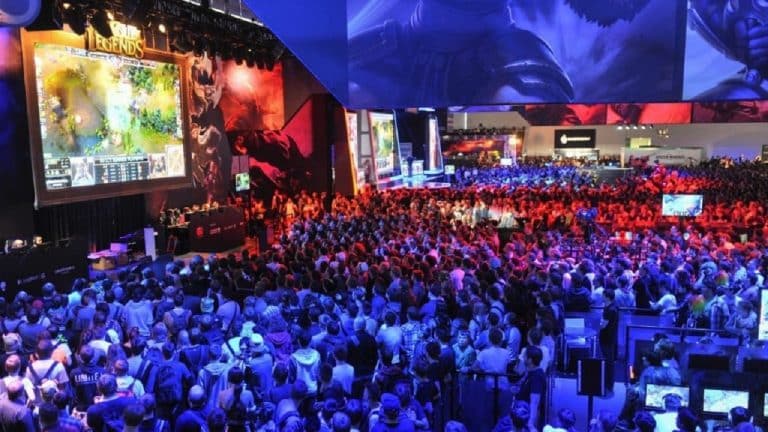The Worlds draws significant numbers; Dot Esports reports how it hit 1.3m viewers in just four days at the beginning of October. It’s an eagerly anticipated end to the season, and despite trailing Dota 2 in terms of prize money, it is a major event on the eSports calendar.
In a Bwin breakdown of the top eSports tournaments worldwide, they explain how it has a £2m prize fund and consists of 24 teams fighting for supremacy. It trails Dota 2 by around $38m in prize money, but with 3.5m peak viewership, it is a bigger draw for the watching world. International 10, Dota 2’s flagship event, peaked at 2.7m.
Sadly, that doesn’t directly lead to profits, as Riot Games have revealed this week. That’s right; arguably, the most popular eSport today doesn’t actually make the developer any serious money, and they don’t mind one bit.
In fact, the head of eSports at Riot Games, John Needham, is perfectly happy making the industry into something else entirely, even if profit isn’t the motivator. “We like to call ourselves the future of the sport,” he said. “That’s what we think we’re building.”
The Worlds began as a marketing tool for the game, but many might think it has now become the focus rather than a mere mechanic to promote the title. That’s now the case, nor is the lack of profit for Riot reflective of the industry as a whole; much of it flows to the competing teams rather than the developer.
“If I can’t make esports a great business for teams and our sponsors, then we’re not going to last long,” Needham said, rather unselfishly. “We’re very much thinking about, ‘How do we make the entire ecosystem profitable?’”
Whilst the eSport has become bigger in many eyes than the title, the reality is that Riot Games still see the eSports industry as a vehicle for promoting the game.
They hope that new gamers will be attracted to the title by staging massive events featuring the world’s best players, boosting player numbers, and improving eSports standards. That’s the eco-system Needham talks about; more players get better; people look up to them and become inspired to play themselves.
That’s not to say there is no profit at all; developers such as Riot and Activision charge teams to compete in the big tournaments and sell broadcasting rights to platforms such as Twitch and YouTube. Much of that success depends on packed stadiums and live events, which weren’t possible during the pandemic. The eSports industry seemed to be pandemic proof, but it was anything that hasn’t helped profitability.
“We’re not in the driver’s seat on when fans will be able to come back to our events,” Needham added. “We are very anxious to bring an audience back. We will do that. But, we’re only going to do it when we know it’s going to be safe for everybody involved.”
They’re not just anxious to bring people back for the experience; they plan to host the Worlds in four major cities next year, expanding profitability and reach to secure the platform’s long-term future.

